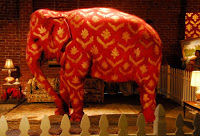- Don Lichterman

- Aug 6, 2019
- 4 min read
...AbbVie, Johnson & Johnson, Roche, Eli Lilly, Bristol Myers-Squibb, and Pfizer.
I literally just got ill having to watch one of these PETA graphics of these mice swimming like mad in these cylinders. I cannot even repost that pic here but I must say come on now. What is wrong with humans and what does a swim test for rats in cylinders do for anything for gods sakes. If there were NOT easy and harm free alternatives com[pared to having to test on animals and wildlife which is why I do this report. If there were not other ways that are safe and not harmful to anything, I would NOT be writing this sentence. Reagrdklessm that picture brought tears to my eyes because yeah,. that's just great to be into that life. What kind of a way to live is that and how do they get that negative lottery pick if you will, to be born or captured or even sold into that life. it makes me ill. Besides, this isn't science – it's torture.
Experimenters grab frightened rats, yank them out of laboratory cages, and plunge them into beakers of water. The animals scrabble at the high, slippery walls, desperately searching for an escape, fearing they'll drown. There's no way out.
This "forced swim test" – originally known as the "despair test" – is the stuff of humans' worst nightmares. But for animals in laboratories, it's a terrifying experience that they can't wake up from.
The experimenters watch and take notes as the rats (or other small animals) panic, kicking and clawing to keep from drowning – until they're utterly exhausted and they begin to float.
Experimenters at universities and pharmaceutical companies have been dropping animals into beakers for decades, bizarrely claiming that nearly drowning an animal can somehow stand in for human depression and other chronic, complex conditions. Just like the vast majority of animal tests, this abuse does not lead to effective medications for humans.
PETA is determined to end the torture that animals face in archaic, distressing experiments, and we're promoting cutting-edge research methods that can actually help humans.
Pharmaceutical giants AbbVie, Johnson & Johnson, and Roche have already pulled the plug on the forced swim test after hearing from PETA's affiliates. Now, PETA and thousands of our supporters are keeping the pressure on Eli Lilly, Bristol Myers-Squibb, and Pfizer to do the same. We won't let up until we relegate the forced swim test – and all crude and cruel animal experiments – to the history books.
Transporting animals to be used in painful laboratory experiments is abhorrent – and that's just what Air India is doing.
At their final destination, the animals may be imprisoned in cages and subjected to a lifetime of misery. In one case, experimenters in India cut open the legs of male beagles, inserted transmitters into them, forced tubes into their penises, and repeatedly injected the dogs with experimental drugs.

Many leading international airlines already have full or partial restrictions on shipping animals to laboratories. Will you urge Air India to follow suit?
Following discussions with PETA India, Air India once agreed to implement a companywide ban on shipping animals to laboratories. Unfortunately, the airline has since bowed to pressure from animal experimenters and decided to allow the transport of animals to laboratories once again.
After enduring a long and gruelling journey in the cargo hold of a plane and the back of a lorry, animals are routinely mutilated, poisoned, deprived of food and water, forcibly immobilised in restraint devices, infected with painful and deadly diseases, and psychologically tormented in laboratories.
No living, feeling being deserves to face this cruelty.
Please speak up now and urge Air India to reinstate its ban on transporting animals to laboratories.
Massachusetts Medical Training Programs End Animal Use

Following a decade-long Physicians Committee campaign, Baystate Medical Center in Springfield, Mass., announced that it ended live animal use in its Advanced Trauma Life Support (ATLS) program, as well as in its emergency medicine residency program. One ATLS Program Still Uses Animals
Urge North Dakota State University and Sanford Health to End the Use of Live Pigs for ATLS Training
Please ask North Dakota State University president Dean L. Bresciani, Ph.D., and Sanford Health Fargo executive vice president Nate White to replace the use of live pigs in their joint Advanced Trauma Life Support (ATLS) program. We have provided text for you, but if you decide to write your own message, please be polite and encouraging.
Animal Testing Weekly Updates
"Corporations Are People Too My Friends."
Our companies are known for creating products that enhance people's lives. Through Sunset Corporation of America and its companies, we’re equally dedicated to improving lives. Our commitment extends to helping local communities, fostering better educational systems, supporting the arts and culture, helping disadvantaged youth, protecting and improving the environment, animal welfare, wildlife issues and encouraging employee volunteerism.
Our commitment extends to helping local communities, fostering better educational systems, supporting the arts and culture, helping disadvantaged youth, protecting and improving the environment, animal welfare, wildlife issues and encouraging employee volunteerism. Activism and Sustainability:
Gun Safety & Gun Laws
Cruelty Free
Death Penalty
Demand Action
Sustainable Action Network
Fairness and Equality:
Privatization
Voters Issues & Gerrymandering
Private Prisons & the War on Drugs
Finance, Housing & the Economy
Corporate Responsibility:
Candidates, Bills, Laws & Protections
Wildlife & Oceania
Labeling & Transparency
Comprehensive Captivity & Hunting Results Databases





















